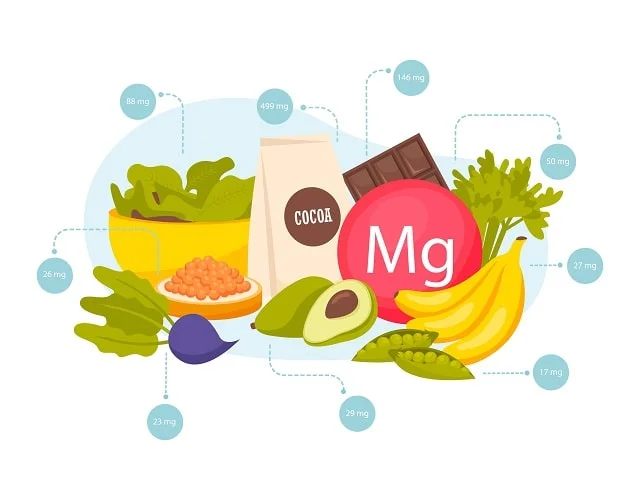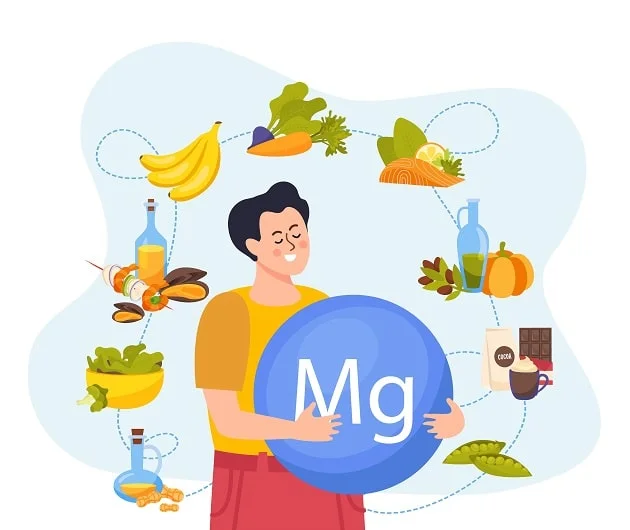
Magnesium in Physical Therapy
- Magnesium in Physical Therapy
- The Importance of Magnesium in Physical Therapy and Rehabilitation
- Effects of Magnesium on the Muscular and Nervous Systems
- Role in Bone and Joint Health
- Chronic Pain and Magnesium
- Advantages of Magnesium Supplementation in Rehabilitation
- Types of Magnesium Supplements
- Which Type of Magnesium Should Be Chosen?
- Who Can Benefit from Magnesium Supplementation?
- Conclusion
The Importance of Magnesium in Physical Therapy and Rehabilitation
Physical therapy and rehabilitation encompass a multidisciplinary field used to treat various conditions, including musculoskeletal disorders, chronic pain syndromes, muscle spasms, and neuromuscular diseases. During this therapeutic process, several minerals and nutrients play a crucial role in supporting patient recovery. One of the most significant among them is magnesium. Magnesium is essential for muscle function, nerve transmission, and energy metabolism, making it highly valuable for patients undergoing physical therapy and rehabilitation.
Effects of Magnesium on the Muscular and Nervous Systems
Magnesium is a critical mineral involved in the contraction and relaxation of muscles. It helps regulate calcium levels in the body, preventing muscle spasms. Due to this property, it serves as an important supportive element in the treatment of conditions such as muscle tension, fibromyalgia, chronic fatigue syndrome, and myofascial pain syndrome.
Additionally, magnesium positively contributes to the rehabilitation of peripheral nerve injuries, disc herniations, and neuropathic pain syndromes due to its effects on nerve transmission. Magnesium deficiency can lead to hyperactivity in the nervous system, resulting in symptoms such as muscle spasms and increased pain perception.
Role in Bone and Joint Health
Magnesium supports calcium and vitamin D metabolism, helping to maintain bone health. In patients at risk for osteoporosis, magnesium supplementation during rehabilitation can enhance bone mineral density and accelerate fracture healing.
Furthermore, in joint disorders such as osteoarthritis and rheumatoid arthritis, magnesium’s anti-inflammatory properties become particularly beneficial. Magnesium can alleviate joint pain by suppressing the release of inflammatory cytokines.

Chronic Pain and Magnesium
Chronic pain is one of the most common issues encountered in physical therapy and rehabilitation. Magnesium acts as an NMDA receptor antagonist, reducing pain sensitivity in the central nervous system. As a result, magnesium supplementation can be an important complementary treatment for chronic pain syndromes, including migraines, fibromyalgia, and lower back and neck pain.
Advantages of Magnesium Supplementation in Rehabilitation
- Muscle relaxation and pain control: Helps reduce muscle spasms and promotes relaxation during rehabilitation.
- Supports energy metabolism: Essential for ATP synthesis, potentially reducing muscle fatigue.
- Regulates nervous system balance: Helps control nerve transmission and muscle contraction.
- Strengthens bone health: Supports calcium metabolism and protects against bone loss.
- Has sleep and stress-regulating effects: Reduces the negative effects of stress and insomnia during rehabilitation.
Types of Magnesium Supplements
Magnesium supplements come in different compounds, each with varying absorption rates and bioavailability. Below are the most common types of magnesium supplements and their characteristics:
- Magnesium Citrate: Bound with citric acid, this form has high bioavailability and is easily absorbed by the body. It also helps relieve constipation and supports muscle relaxation and nervous system health.
- Magnesium Malate: Combined with malic acid, this form has moderate-to-high bioavailability. It is often recommended for chronic fatigue syndrome and fibromyalgia due to its role in energy production.
- Magnesium L-Threonate: This form has the highest ability to cross the blood-brain barrier, making it beneficial for cognitive function and brain health. It is recommended for conditions like Alzheimer’s and attention deficit disorders.
- Magnesium Glycinate (Bisglycinate): Bound with the amino acid glycine, this highly bioavailable form is gentle on the stomach. It helps reduce stress and anxiety, promotes muscle relaxation, and is beneficial for sleep problems.
- Magnesium Oxide: Combined with oxygen, this form has low bioavailability but is commonly used for constipation due to its strong laxative effect. It is less effective for muscle and nerve function.
- Magnesium Taurate: Bound with taurine, this form supports cardiovascular health by helping to regulate blood pressure.
- Magnesium Chloride: Highly absorbable and beneficial for digestive health. It is also used topically for skin health.
- Magnesium Sulfate (Epsom Salt): Has low oral absorption but can be effectively absorbed through the skin when added to bathwater. It helps relax muscles and has detoxifying effects.
- Magnesium Aspartate: Combined with aspartic acid, this form has high bioavailability and is commonly used by athletes for muscle and nerve function support.
Which Type of Magnesium Should Be Chosen?
- For general health support: Magnesium glycinate, citrate, or malate is recommended.
- For stress and sleep problems: Magnesium glycinate or L-threonate is more suitable.
- For digestive issues: Magnesium citrate or oxide may be preferred.
- For increased energy levels: Magnesium malate is ideal.
- For brain health and memory: Magnesium L-threonate is the best option.
- For heart health: Magnesium taurate is recommended.
Before taking any magnesium supplement, consulting a healthcare professional based on individual health conditions is always advisable.
Who Can Benefit from Magnesium Supplementation?
- Patients experiencing frequent muscle spasms and cramps
- Individuals diagnosed with chronic fatigue syndrome and fibromyalgia
- Patients with osteoporosis and osteoarthritis
- Individuals with nervous system disorders (neuropathic pain, disc herniation, etc.)
- People suffering from migraines and headaches
Conclusion
Magnesium is a crucial mineral in physical therapy and rehabilitation due to its beneficial effects on the musculoskeletal system, nervous system, and energy metabolism. By regulating muscle contraction and relaxation, it enhances mobility, reduces pain, and accelerates overall recovery. Therefore, when taken in appropriate doses under medical supervision, magnesium supplementation can significantly enhance the effectiveness of physical therapy and rehabilitation interventions.

Dr. Elif Berber
Specialist in Physical Therapy and Rehabilitation





